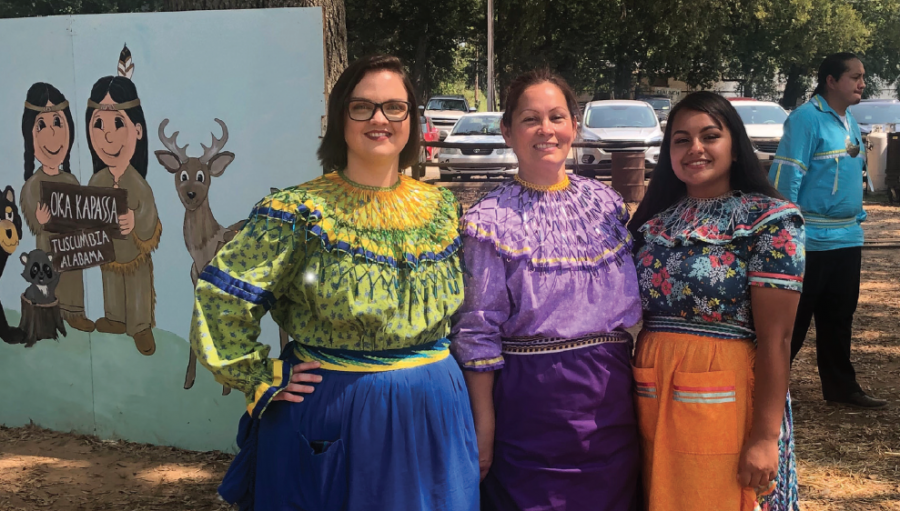Oka Kapassa filled with cultural experience
September 19, 2019
On Sept. 13 and 14, the 18th annual Oka Kapassa was held at Spring Park in Tuscumbia, Alabama. Oka Kapassa Return to Coldwater is a festival that honors the indigenous people who once inhabited Northern Alabama. The festival is two days filled with culture in all forms. Sept. 13 was dedicated to educating local children about the culture. The festival was opened as a field trip experience for children in fourth and fifth grade. On Saturday, Sept. 14 the festival was open to the community. Hosts and spectators alike immediately welcomed newcomers. Events occurred throughout the day, including story telling, stone carving, dances, jewelry and pottery making, and various demonstrations. Vendors selling goods and different types of food lined the park. Despite the high temperatures, people in attendance exuded high spirits. Native potters showed their craft, and tribe leaders shared oral traditions. “I used to work at an Indian village. It’s basically just a walk through of our history, all of your crafts, and how we used to live and everything like that,” said Eastern Cherokee descendent Naomi Swimmer. “I came to demonstrate pottery with my grandpa, he does beadwork. We brought a bunch of crafts from back home in North Carolina. Everything is handmade.” Descendants of the Chickasaw tribe led a traditional dance for guests. The dancing ritual began in 1837 when the government drove the tribe out of Northern Alabama. Dancing served as an act of peaceful protest. On Saturday, tribe members demonstrated a dance to their “Full Warrior Song.” The women created the music by wearing things varying from turtle shells to soup cans around their legs as they danced. They ended with a “duck dance,” an interactive experience including children and adults, that they perform to thank the creator for ducks as food. Both children and adults participated in the duck dance. “We travel all over the United States to share our culture and our dances, and this is one of our stops,” said Jesse Lindsey, the manager of the dance troupe. “[I want people] to pick up and share our songs that go back to he beginning. And come talk to us over here come, and share our culture and language.”



![Caleb Crumpton [COURTESY OF UNA SGA]](https://theflorala.com/wp-content/uploads/2024/07/caleb-crumpton-courtesy-of-SGA-425x600.jpg)






